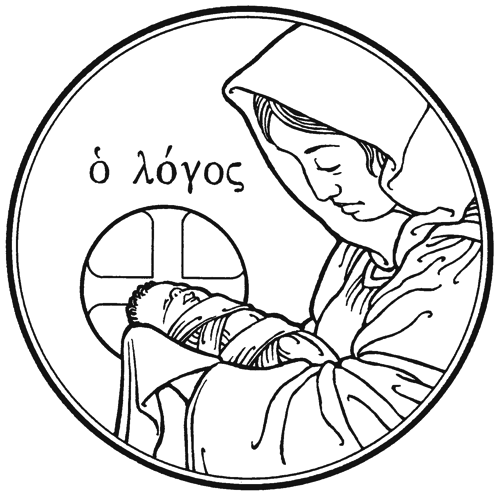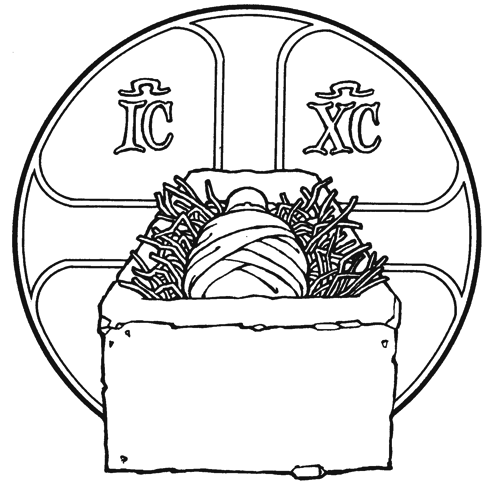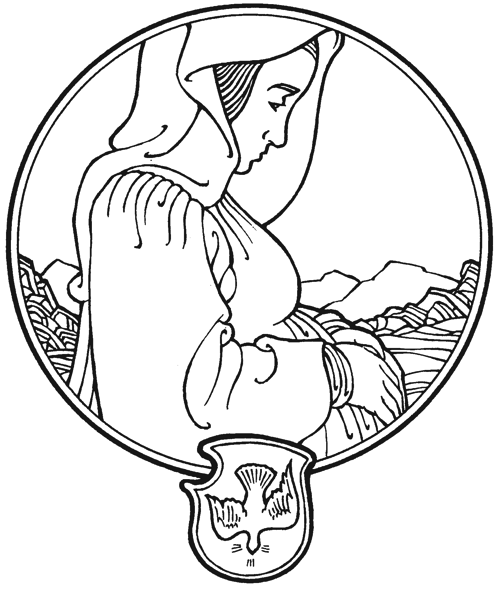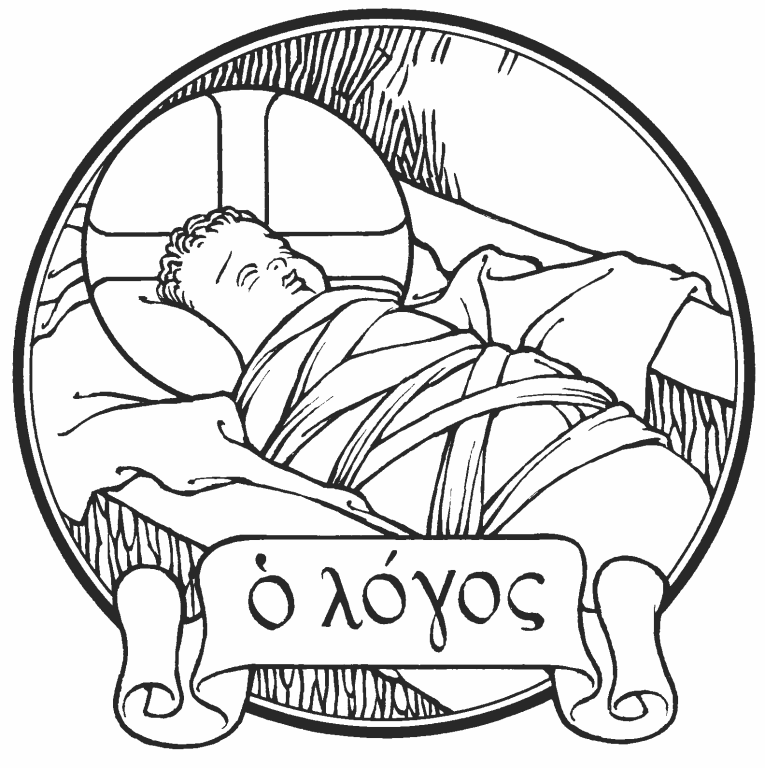 Grace, mercy, and peace to you from God our Father, and from our Lord and Savior, Jesus Christ, amen. The text for the sermon is the Gospel, which was read earlier, as well as the hymn, “Of the Father’s Love Begotten.”
Grace, mercy, and peace to you from God our Father, and from our Lord and Savior, Jesus Christ, amen. The text for the sermon is the Gospel, which was read earlier, as well as the hymn, “Of the Father’s Love Begotten.”
“In the beginning was the Word, and the Word was with God, and the Word was God.” These words capture who Jesus Christ is. He is the very Word of God in the flesh. These are not just mere words, but rather words that declare Jesus. Today is all about Jesus, despite what many think. While many are at home with family opening presents galore, we are gathered here today to receive the only present that matters – the gift of forgiveness that comes in Jesus Christ.
Today we gather in excitement and joy. After all the waiting, Christmas is finally at hand. After spending weeks in preparation, we wonder if we have done everything or if everything we had done was really worth the effort.
That is precisely why we need a word such as this today. It declares a “no” to the empty routine and darkness of the made-upness that Christmas tends to turn into and return the focus to what this day is all about: the birth of Christ.
Christmas is all about God coming to seek and to save us. He does this through the Child that is born today. This is not just any child that is born, but it is the very Son of God, the Word made flesh. John tells us much in our text today, but a key phrase that he returns to is “light.” He calls Jesus the “light of men” and “the true light.”
Thus we focus on Bethlehem and that tiny infant who illumined the whole world with a love that never pales. We see the Virgin tenderly holding her child, and Joseph keeping a watchful eye in that cramped stable, filled as it must have been with barnyard animals. The shepherds arrive with the excitement of children to marvel at what the angels had said and to tell their wondrous story of hearing the heavenly hosts praising God and revealing the birth of the Messiah. Through Bethlehem’s dark fields they stumbled toward the one glowing light, that baby called Jesus, whom Isaiah named Immanuel, “God with us.”
This Jesus, who was promised of long ago, makes His entry into creation, though it is anything but glorious, at least to the outward appearance. Though born in a lowly stable, it is as was foretold. “This is He whom seers in old time/Chanted of with one accord,/Whom the voices of the prophets/Promised in their faithful word.” Everything that the prophets of old had said has been fulfilled. We have the line of David, a virgin birth, born in Bethlehem. Everything is as it should be.
John, in his Gospel, tells us precisely the purpose of the Word: “But to all who did receive him, who believed in his name, he gave the right to become children of God, who were born, not of blood nor of the will of the flesh nor of the will of man, but of God.” You have been made children of God, and that means something. It means you have God’s name placed upon you. It means that you belong to Him and receive all that He has for you. God has for you forgiveness. God has for you life. God has for you salvation. All of this comes through the birth of Jesus Christ. There is no other way to receive forgiveness of sins, life and salvation. We can certainly try, but we will never achieve it. We can certainly try, but we will never receive it because it comes from Christ alone.
Here is the glory of God. Here is where grace and truth are found: in the lowly One who is born of Mary, who identifies with sinners, who blesses ordinary things, who calls us to be His servants. Not to see that glory of God is to miss out on Christmas, no matter what we do on Christmas Eve or Christmas Day. To see, with John and all God’s people through the centuries, the true glory of Christmas is to recognize that God is among us in the person of Jesus, now and forever.
Today is indeed a joyous day, and there is something that we should be doing, but not just today but everyday: “O ye heights of heav’n adore Him;/Angel hosts, His praises sing./Pow’rs, dominions, bow before Him/And extol our God and King./Let no tongue on earth be silent,/Ev’ry voice in concert ring/Evermore and evermore.” As we heard in Luke’s Gospel account of our Lord’s birth, the angels in heaven proclaim: “Glory to God in the highest, and on earth peace among those with whom he is pleased!” We, like the shepherds, rejoice at the gift that God gives to His people.
The love of God is an incarnate love; a love our God lived out in flesh and blood. It is among us; it is here, a reality. Love is not an emotion floating around. It is present in Jesus, who reached out to people—even unlovable people. He drew near to sinners; He touched people who were hurting. He touched them and brought them the forgiveness of God. That love of God has touched us and is in us.
Today we rejoice, for the Savior, which is Christ the Lord, is born. He is the Savior, which is Christ the Lord every day of the year and not just on Christmas Day. He was born for our sin and takes away our sin ever day of the year. Because you and I were born in sin, He is born to save us from sin. Because you and I are made of mortal flesh and blood, He becomes flesh and blood to raise us up to immortality. Because you and I face death, He is born to di and rise again to give us new life. He is our Savior, Christ the Lord, and He is born for you and has forgiven us all of our sins. Let this be our focus at Christmas: the Word made flesh in the form of an infant, so that one day, He may die for our sins and open the gates of heaven for us sinners. Let us rejoice in the Gift of all gifts which has been given to us, Jesus Christ, Immanuel, God with us, amen. Now the peace of God that passes all understanding, keep your hearts and minds through faith in Christ Jesus, amen.


